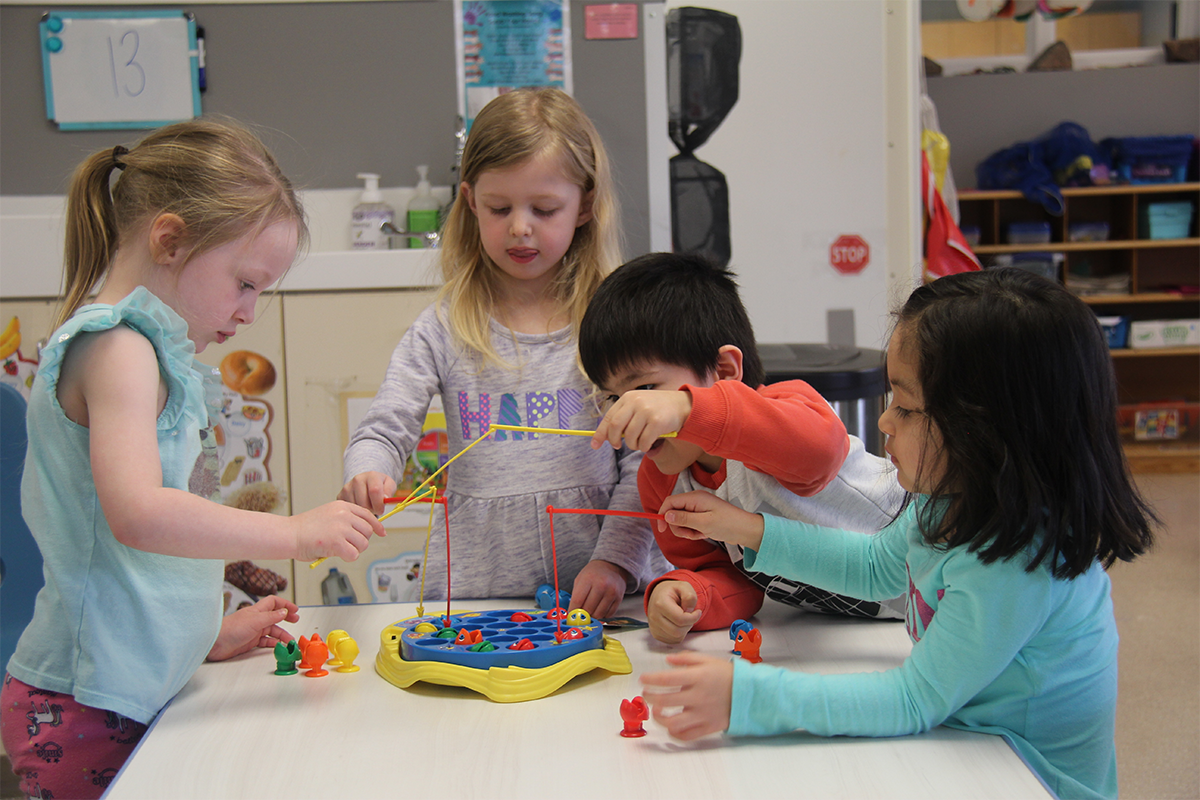Play is Children’s “Work”
Top 3 Benefits of Pretend Play.
Who doesn’t want to play “grocery store” or “rocket to the moon”? These are some of the pretend play scenarios children love playing. There are many stages that a child goes through with regards to pretend play. For example, an 18 month old will pretend to feed a doll or cover a teddy bear with a blanket so the bear can go to sleep. However, a 5 year old might come up with an elaborate scenario involving setting up chairs and pretending it is an airplane. Children love turning the dining room into an airport and the kitchen into the plane. They even make tickets which each passenger has to hand in at the gate (aka, the kitchen counter). Each stage of play children go through will aid in their development.
- Play Encourages Communication
Play allows children the opportunity to develop speech and language skills as well listening skills. Children talk and listen while they play. Whether this be during solitary play, which typically involves self-talk and narration (e.g. “now my car is driving up the hill and then it goes down, wee, wee, wee”) or play with a companion, children communicate to add purpose to their play. The more vocabulary a child is exposed to on a day-to-day basis, the greater the variety of words a child will incorporate into play. Sometimes there are disagreements about who gets to play which role or what will be included on the menu, but this is a teachable moment on how to work through these issues, and talk about compromising.
- Play Improves Cognitive Development
Children who engage in pretend play tend to have more sophisticated levels of interaction with others. Bergen, D (2002) found that more and more evidence supports the connections between cognitive ability and high-quality pretend play. Moreover, if children are deprived of play, their long-term capabilities related to problem solving, social skills, and academic areas (e.g. literacy, math and science) could be lessened.
Children who played with their parents, had positive mental health, stronger friendships and experienced a stronger family bond.
- Play Encourages Relationship Building
Play helps to promote the development of social skills. Children who play with their parents and peers learn how relationships work through their play experiences. Play is important in a child’s life, and as a result there is an increase in the number and quality of their friendships.
Many people don’t realize that social skills are a vital part of language development. Language is so much more than simply spoken words!
If you are interested in reading about the role of play in normal emotional development, please read the article “Free Play Is Essential for Normal Emotional Development” found in Psychology Today.
By Tanya Thibodeau
seemeandliz.com, a site dedicated to teaching parents how to best interact with their babies and young children in order to enhance language development and learning
tanya@seemeandliz.com
